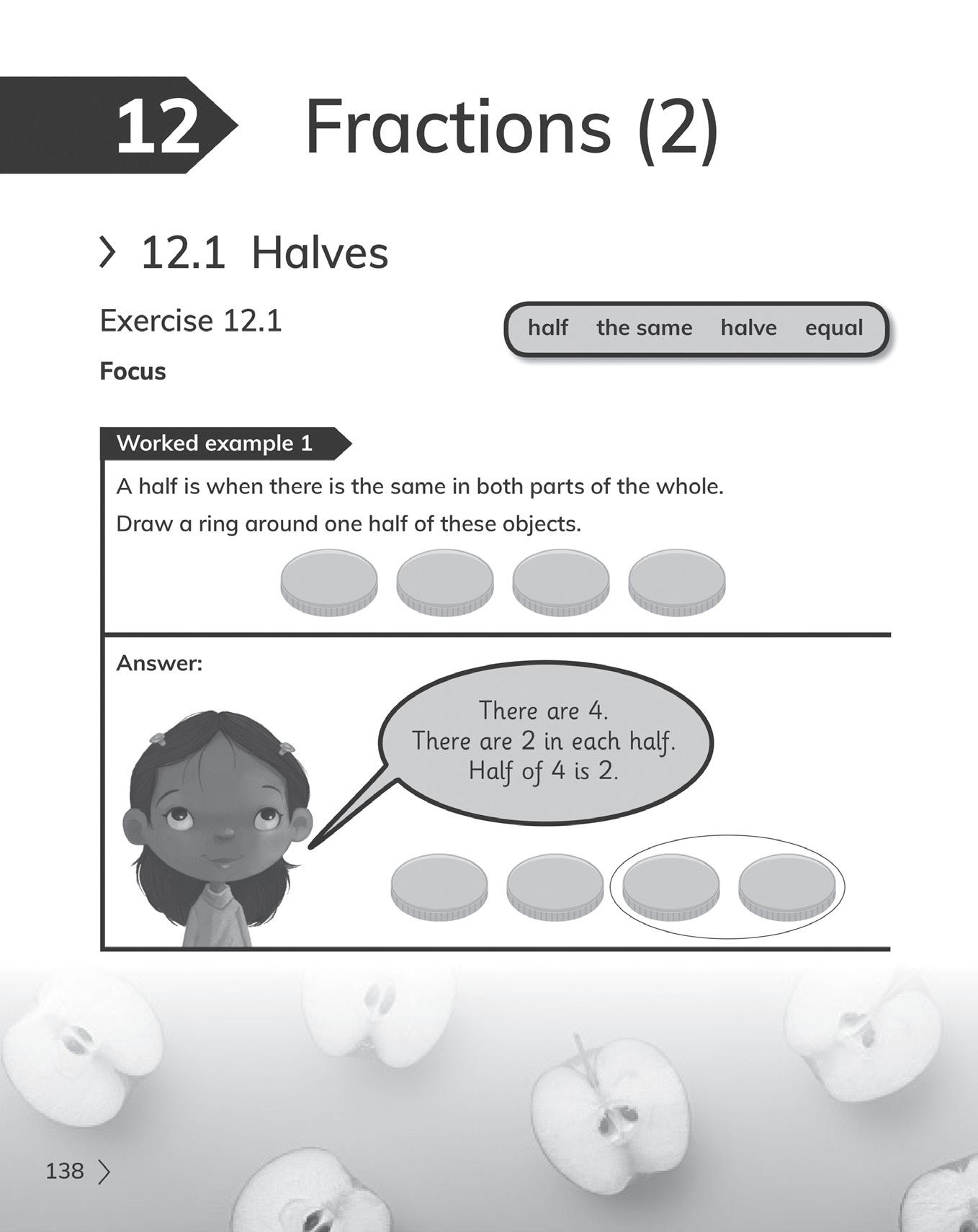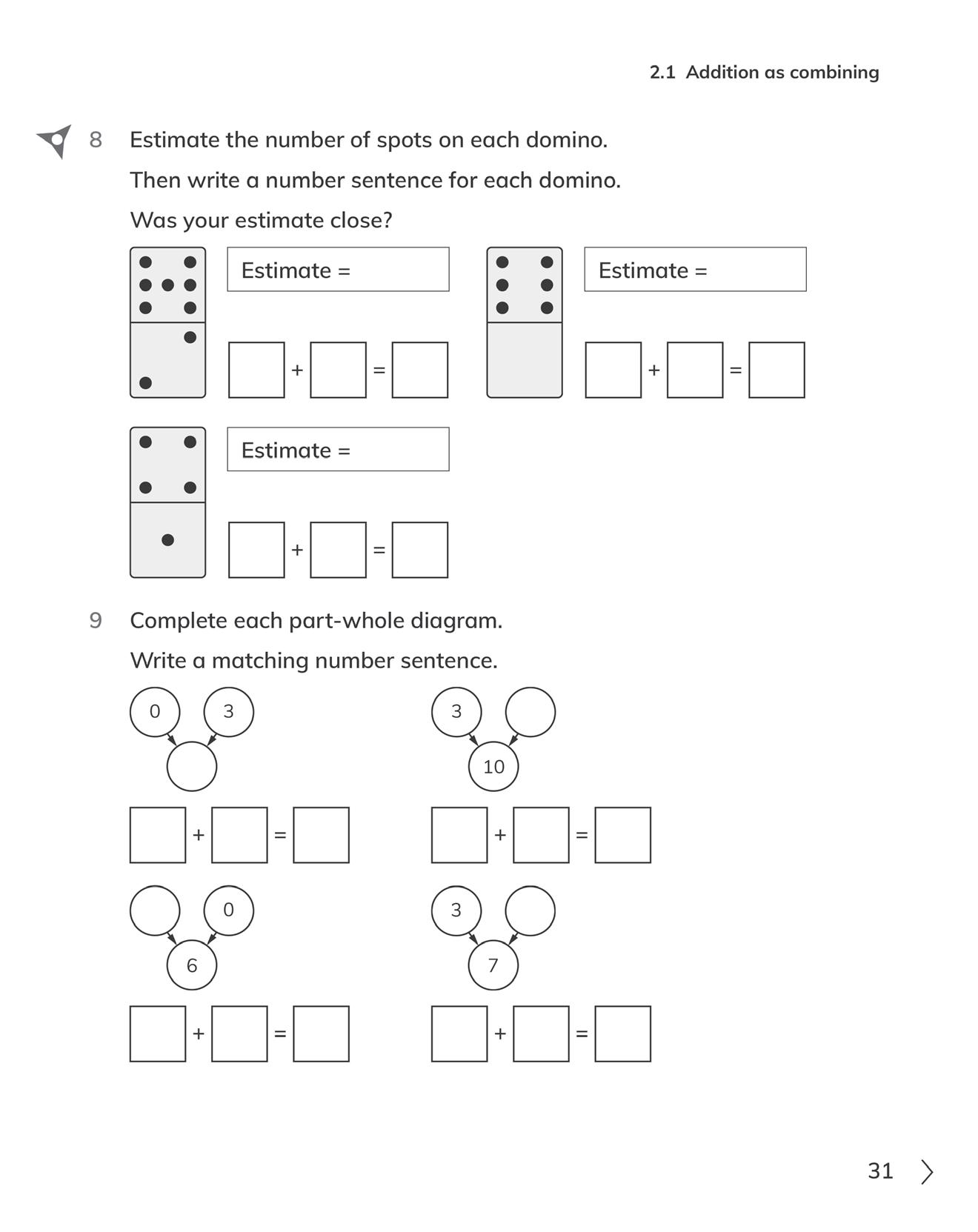
1 minute read
How to use this book
This workbook provides questions for you to practise what you have learned in class. There is a unit to match each unit in your Learner’s Book. Each exercise is divided into three parts: • Focus: these questions help you to master the basics. • Practice: these questions help you to become more confi dent in using what you have learned. • Challenge: these questions will make you think very hard. You might not need to work on all three parts of each exercise. You will also fi nd these features:
Important words that you will use.
Step-by-step examples showing a way to solve a problem. There are often many different ways to solve a problem.

These questions will help you to develop your skills of thinking and working mathematically.

Thinking and Working Mathematically
There are some important skills that you will develop as you learn mathematics.
Specialising is when I test examples to see if they t a rule or pattern.
Characterising is when I explain how a group of things are the same.
Generalising is when I can explain and use a rule or pattern to nd more examples.
Classifying is when I put things into groups and can say what rule I have used.
Critiquing is when I think about what is good and what could be better in my work or someone else’s work.
Improving is when I try to make my maths better.
Conjecturing is when I think of an idea or question linked to my maths.
Convincing is when I explain my thinking to someone else, to help them understand.

